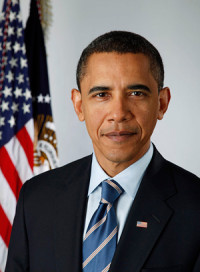 We don’t want to close out the week without acknowledging the National Conference on Mental Health held at the White House this past Monday. Attended by high-ranking government officials, Members of Congress, mental health advocates, educators, medical professionals, veterans, faith leaders, local officials, and people living with mental health conditions and their family members, the Conference focused on two questions:
We don’t want to close out the week without acknowledging the National Conference on Mental Health held at the White House this past Monday. Attended by high-ranking government officials, Members of Congress, mental health advocates, educators, medical professionals, veterans, faith leaders, local officials, and people living with mental health conditions and their family members, the Conference focused on two questions:
- How can we reduce the social misperceptions associated with mental health conditions?
- How can we support people with mental health conditions to get help?
–President Barack Obama
The Obama Administration has undertaken an effort to raise awareness about mental health issues and improve care for people experiencing them. One part of that effort is a website for mental health information and support at mentalhealth.gov. Another is creation of materials to facilitate Community Conversations About Mental Health.
Here are some highlights from President Obama’s opening remarks:
- On facilitating conversation about mental health: “The main goal of this conference is not to start a conversation— so many of you have spent decades waging long and lonely battles to be heard. Instead, it’s about elevating that conversation to a national level and bringing mental illness out of the shadows.”
- On facing mental illness: “We want to let people living with mental health challenges know that they are not alone, and we’ve got to be making sure that we’re committed to support those fellow Americans, because struggling with a mental illness or caring for someone who does can be isolating.”
- On stigma: “[W]e know that recovery is possible, we know help is available, and yet, as a society, we often think about mental health differently than other forms of health. [ . . . ] And there should be no shame in discussing or seeking help for treatable illnesses that affect too many people that we love. We’ve got to get rid of that embarrassment; we’ve got to get rid of that stigma.”
- On getting treatment: “First, we’ve got to do a better job recognizing mental health issues in our children, and making it easier for Americans of all ages to seek help. Today, less than 40 percent of people with mental illness receive treatment—less than 40 percent. Even though three-quarters of mental illnesses emerge by the end of—by the age of 24, only about half of children with mental health problems receive treatment. Now think about it: We wouldn’t accept it if only 40 percent of Americans with cancers got treatment. We wouldn’t accept it if only half of young people with diabetes got help. Why should we accept it when it comes to mental health? It doesn’t make any sense.”
- On access to mental health care: “It’s not enough to help more Americans seek treatment—we also have to make sure that the treatment is there when they’re ready to seek it.”
- On our roles: “If you know somebody who is struggling, help them reach out. Remember the family members who shoulder their own burdens and need our support as well. And more than anything, let people who are suffering in silence know that recovery is possible. They’re not alone. There’s hope. There’s possibility. [ . . . ] Let’s do everything we can to help our fellow Americans heal and thrive.”
Your Turn
Did you watch, listen to, or read about the conference? What messages from the National Conference on Mental Health were most meaningful to you, and why?









Connect With Us